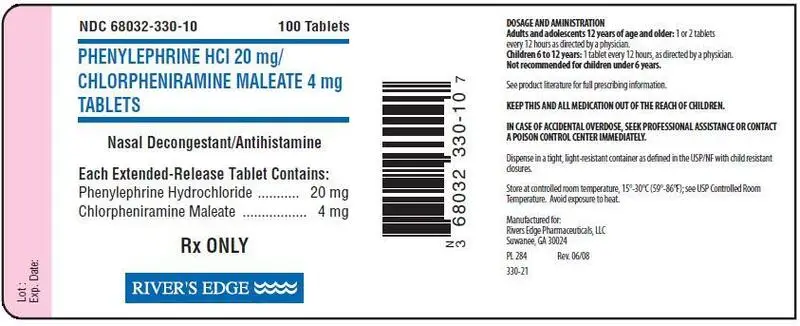Phenylephrine and Chlorpheniramine Tablets - Clinical Pharmacology
Phenylephrine Hydrochloride is a sympathomimetic amine, which acts predominately by a direct action on alpha adrenergic receptors. In therapeutic doses, the drug has no effect on the beta adrenergic receptors of the heart. Clinically, Phenylephrine Hydrochloride shrinks swollen mucus membranes, reduces tissue hyperemia, edema, and nasal congestion; and increases nasal airway patency. In therapeutic doses, the drug causes little, if any, central nervous system (CNS) stimulation.
Chlorpheniramine Maleate competitively antagonizes most of the smooth muscle stimulating actions of histamine on the H1receptors of the GI tract, uterus, large blood vessels, and bronchial muscle. It also antagonizes the action of histamine which results in increased capillary permeability and the formation of edema. Chlorpheniramine Maleate is an alkylamine type of antihistamine. This group of antihistamines is among the most active histamine antagonists and is generally effective in relatively low doses. They thereby prevent, but do not reverse, responses mediated by histamine alone. The anticholinergic actions of most antihistamines provide a drying effect on the nasal mucosa. Chlorpheniramine Maleate is not so prone to produce drowsiness and is among the most suitable agents for daytime use, but a significant proportion of patients do experience this effect.





